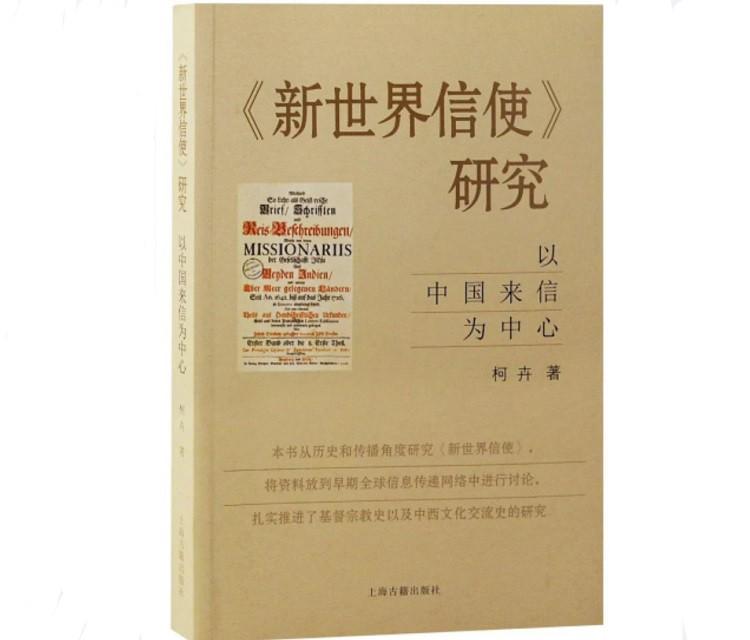In January 2023, Shanghai Ancient Books Publishing House released A Study on Der Neue Welt-Bott: Based on the Letters from China, a new book by Ke Hui.
According to Chinese Christian Studies, the book records the livelihood of Chinese people and the missionary work carried out in China during the Qing Dynasty, from the perspective of Jesuits who came to China more than 200 years ago.
Der Neue Welt-Bott (The New World Messenger) is a German Jesuit journal compiled in the 18th century by Jesuit Joseph Stöcklein and his companions. During that time, the Roman Catholic Church strictly prohibited Catholic missionaries from accommodating Chinese etiquette, as the traditional etiquette of the Chinese was in serious conflict with the Catholic faith. Thereafter, the Qing government began to implement a total ban on religion, making life increasingly difficult for the missionaries in China. Still, the missionaries kept telling people in Europe about the lives of Chinese people and missionary work in China. They did this either by doing their ministry in secret in the different provinces or by working at the Qing court so they could stay in Beijing legally. Some of these messengers were Jesuits who went to China in the early and middle parts of the Qing Dynasty, like Jérôme Franchi, Xavier Ehrenbert Fridelli, Ferdinand Verbiest, Florian Bahr, etc., who were not well-known at the time. Since they tried all kinds of channels to bring the latest information on China to their European readers, they too became research subjects in the study of modern Chinese Catholic church history, the history of East and West cultural exchange, as well as the early stage of information globalization.
The research in this book focuses mainly on the letters from China in Der Neue Welt-Bott, examining their editors, text, and content structure from a historical perspective, and carrying out a discussion on the early global communication network based on such results.
Der Neue Welt-Bott includes 190 letters sent from China during the end of the Ming Dynasty to the early and mid-Qing Dynasty, featuring the letters contributed by German Jesuits from various provinces in China, as well as the translation of French Jesuit letters. Over the years, editors kept a modest record of China’s social condition and missionary work at that time, such as the lives of missionaries in China, the “missionary case" that took place in various provinces, the “Macau incident,” etc. This book shifts to the Chinese perspective and views the incidents that happened in China from the relatively objective viewpoint of Westerners.
- Translated by Joyce Leung












